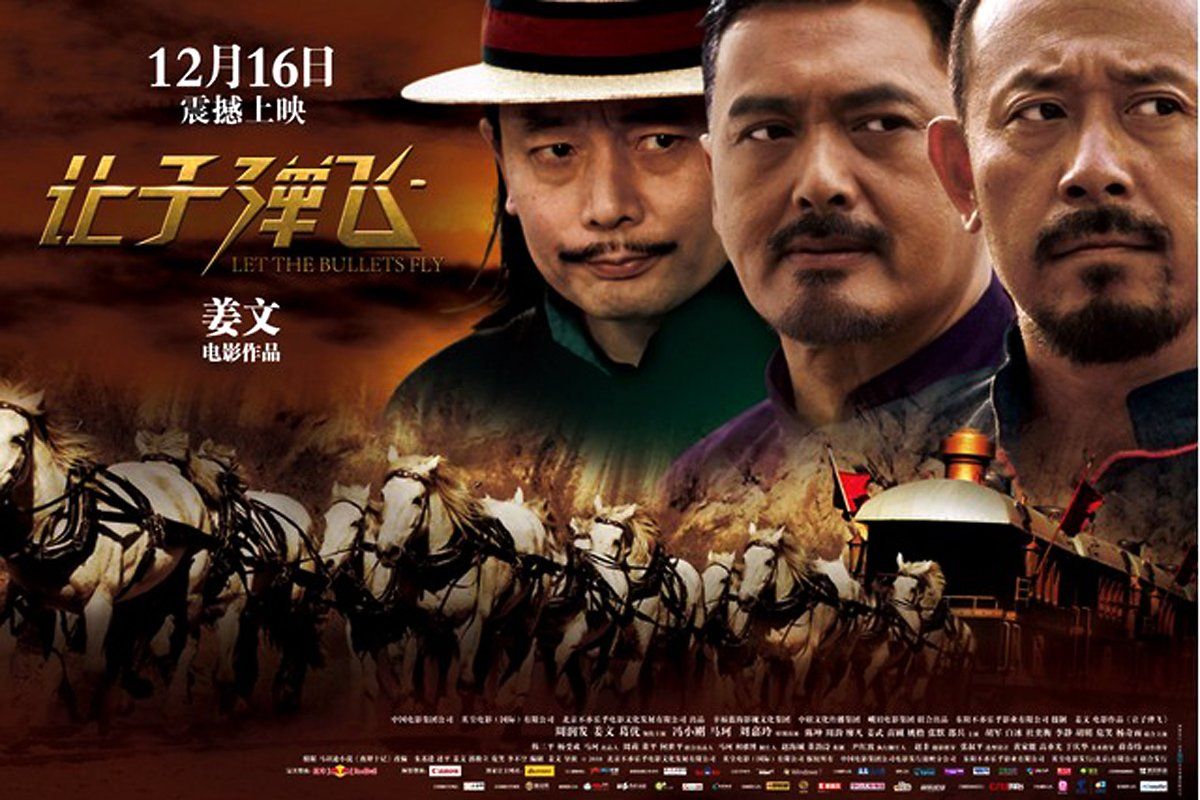
China's biggest domestic box-office hit to date is a freewheeling romp full of sex, violence, and humor. Set in the early 20th century, after the Ching dynasty shattered and warlords fought over the empire's pieces, Let the Bullets Fly tells the brutally comic tale of a bandit facing off with the local strongman for control of a provincial town. Released in December, it is already the second-highest-grossing film ever to play on the mainland, right behind Avatar.
Its wit, candor, and lack of ideology make it the rare mainland film that's considered a movie first and a Chinese movie second. Jiang Wen, who directed the film, plays the intense bandit chief Zhang, whose band of six brothers robs a train, along with the governing seal to Goose Town, where they establish a regime that steals from the rich to distribute to the poor. Opium smuggler Huang Silang (Hong Kong action star Chow Yun-Fat) repeatedly tries to kill Zhang and regain his town. The former governor, Master Tang (popular Chinese actor Ge You), tries to broker a truce while figuring out his angle. "Don't risk your life," he warns Zhang. "If you do, you can't make money."
While some critics have praised Let the Bullets Fly, others consider it a minor success in a China that still doesn't know how to make movies. "This is a good film, and there's a lack of other good films out there, so this one gets more attention," says Zeng Jiaxin, a Beijing-based film and cultural critic. China's total box-office take in 2010 rose 64 percent, to $1.55 billion, which is still less than 15 percent of America's.
Plenty of viewers have read political overtones into Jiang's film. Echo Li, who runs a child-education company in Beijing, says the Robin Hood–like character of Zhang "has a Mao Zedong feeling. Although Mao seized power," he couldn't rule as competently as he could revolt. At the end of the film, Zhang's brothers decide to journey on to Pudong, the district of Shanghai that became one of China's earliest and most successful experiments with capitalism, "because they didn't want to continue fighting [the] revolution with him."
Jiang has denied intentionally imbuing the film with any sort of political satire. One of China's most versatile actors and directors, he's no stranger to the dangers of offending the powers that be. Censors banned his 2000 film Devils on the Doorstep for portraying Chinese peasants as cowardly in their dealings with the Japanese during World War II. Despite winning the grand prize at Cannes that year, Jiang was forbidden to direct for seven years. His next movie, The Sun Also Rises—a magical-realism tale of villagers, college students, and hunters produced in 2007—was so abstract, it was almost meaningless.
With Let the Bullets Fly, though, Jiang has succeeded in creating an officially acceptable yet enthralling film—one in which political subversion exists only in the eye of the beholder.
Uncommon Knowledge
Newsweek is committed to challenging conventional wisdom and finding connections in the search for common ground.
Newsweek is committed to challenging conventional wisdom and finding connections in the search for common ground.





